- WE MOVED !!!
-
 Professional Acupuncture & Physical Therapy1118 East Superior Street
Professional Acupuncture & Physical Therapy1118 East Superior Street
Duluth, MN 55802(218) 724-3400 Clinic Hours
Mon8:00 am - 4:30 pmTue1:45 pm - 4:30 pmWed8:00 am - 4:30 pmThu8:00 am - 4:30 pmFriCLOSED

- Long Covid Booklet
Blog
The Shen Mind Connection

Traditional Chinese Medicine looks at things differently and while it may be a little confusing, there is usually some common ground that can be found upon examination and explanation. One such area is the idea of the mind. The mind in Traditional Chinese Medicine is commonly referred to as the shen.
In Chinese medicine, the shen is interpreted as the spirit or consciousness. The shen lives in the heart organ system and it is considered to be one of the vital substances of the body. The shen is said to preside over the activities that take place in the spiritual and mental planes. So, for many TCM practitioners, shen is actually referring to the mind. And if we look at serious mental illnesses such as schizophrenia and bipolar disorders, the shen or mind is where the dysfunction actually appears.
Chinese medicine refers to this as being “misted” or “clouded”. However, it should be noted not all practitioners agree the mind and the consciousness are the same thing. This is because many of our mental processes are considered subconscious.
As stated, the theory is that the shen lives in the heart. So if a person has a disturbed shen, there may be anxiety, stress, difficulty breathing, heart palpitations and more. Many people with a disturbed shen experience insomnia. Chronic insomnia can then lead to actual mental illness. If we follow this logic, we can see how the shen (in Chinese medicine) and the mind (in Western psychology) are related and somewhat interchangeable.
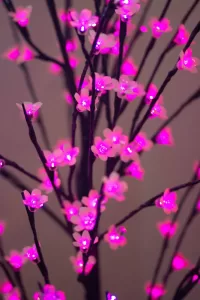 When we approach the shen from the standpoint of Western psychology, it is hard to deny there is a lot of shen disturbance in the modern world. This can be anything from anxiety, depression and addiction to the aforementioned serious mental illnesses like schizophrenia. A person with balanced shen will present as healthy, harmonious and level-headed. A person with disturbed shen will present with a lack of spirit or emotion, illogical reasoning and symptoms of mental illness.
When we approach the shen from the standpoint of Western psychology, it is hard to deny there is a lot of shen disturbance in the modern world. This can be anything from anxiety, depression and addiction to the aforementioned serious mental illnesses like schizophrenia. A person with balanced shen will present as healthy, harmonious and level-headed. A person with disturbed shen will present with a lack of spirit or emotion, illogical reasoning and symptoms of mental illness.
Ultimately, we want to have a balanced shen. This means we may have emotional responses to external stimuli or internally generated thoughts or feelings and we are capable of controlling and recovering from these situations without much incident. Somebody who has a disturbed shen, would not know how or be able to deal with a similar situation and may act out irrationally
while drawing attention to themselves. An example would be when a person with a balanced shen becomes angry or cries for some reason. They tend to feel relief after the emotion has passed. While somebody with a disturbed shen may continue the irrational behavior for quite some time without ever feeling that relief and they might need intervention to return to a somewhat balanced state.
Maintaining a healthy shen also means that we maintain a healthy body. A strong shen is fundamental to good health. When the shen is weak, the body will eventually fail. To keep the shen healthy we should focus on maintaining a positive mindset, getting enough rest, seeking peace, connecting with nature, meditating and showing compassion. This means we ultimately need to avoid overwork, chronic stress, an erratic daily schedule, lack of sleep and volatile emotions such as anger, hatred and resentment. This may seem pretty logical, but based on the amount of shen disturbance/mental illness in the world, it is clear we have lost our way to some degree.
The good news is the cumulative shen of the planet can be changed over time and we can all have a hand in making that change.
Long Haul Covid: TCM vs Western Perspectives
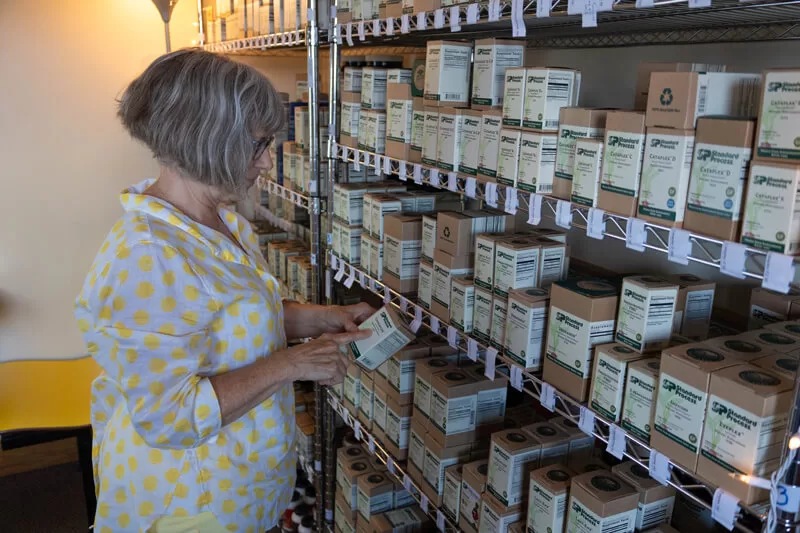
It’s bad enough having Covid, but dealing with lingering symptoms after fighting the infection is downright unfair. Why can’t some people (actually as many as almost half of those infected ) make a clean recovery from Covid? “Long-Haul Covid” (LHC) describes a condition of covid-related symptoms that can last for months after infection, and for some, even longer. This phenomenon is currently being studied so we can better understand the how and why.
The list of possible lingering symptoms is long and conveys the reach of this virus
and its effects on nearly every system of the body: Fatigue, fever, headaches, dizziness, cough, chest pain, heart palpitations, numbness, brain fog, changes in taste and smell, sleep problems, digestive issues, joint pain, rashes, menstrual cycle disturbances, anxiety, and depression. And the list goes on. For some it may only be one stubborn disturbance, for others, it may be a debilitating combination of symptoms.
Lingering symptoms can be from direct harm done to the body by the virus. Covid can take a toll on the body from the level of organs to organelles (microscopic cellular structures) and everything in between. Damage to the body’s organs and tissues may cause various systemic long COVID symptoms. Mitochondrial damage is another focal point of research as this organelle is responsible for energy production in the body and is a target for viral damage. This is an important area of study as ‘covid fatigue’ is one of the most common long-haul symptoms.
 The immune system itself can also cause harm when unregulated. Cytokine storms are an over-aggressive immune response that can lead to persisting inflammation in the body. Many people with long-haul COVID have elevated cytokine levels, suggesting hyper-inflammation plays a role in LHC.
The immune system itself can also cause harm when unregulated. Cytokine storms are an over-aggressive immune response that can lead to persisting inflammation in the body. Many people with long-haul COVID have elevated cytokine levels, suggesting hyper-inflammation plays a role in LHC.
Another possible immune response scenario is that the stress of COVID confuses the body, triggering an autoimmune response, where the immune system mistakenly attacks its own healthy cells, tissues, and organs. There are also theories that the immune system is not actually confused, but going after viral remnants that have gone deeper into hiding and our own tissues become collateral damage in this war. Another related theory proposes that COVID-19 infection could reactivate, or wake up, other viruses in the body that have gone dormant, resulting in various immune reactions.
LHC from a Chinese Medicine perspective takes into account that COVID is generally considered to be a ‘damp’ pathogen, affecting fluid balance in the body. This imbalance causes inflammation and the main symptoms of cough and fatigue. As the body works to restore balance by redistributing fluid and energy, as well as expelling the pathogen, some may need extra help depending on their constitution, environment, lifestyle and the strength/amount of the pathogen. If help is not received and the imbalance persists, it can manifest in 4 main ways.
Deficiency. The infection drained the body of qi (energy), blood, or body fluids. The key symptom of deficiency is fatigue.
Excess. Covid’s signature effect of ‘dampness’, in excess, can lead to feelings of heaviness and stiffness, as well as symptoms like diarrhea and bloating. Excess heat from the virus in the body can also manifest in things like chronic fever or red itchy rashes.
Stagnation. This is any scenario where the virus has blocked the free flow of the blood and energy in the body. In this form the prominent symptom is pain. The more severe the blockage, the more severe the pain.
Retained Pathogen/Latent Heat: Similar to the idea that viral remnants remain in the body to either confuse or overstimulate the immune system, ths Chinese Medicine concept of ‘retained pathogens’ refers to when a pathogen gets ‘stuck’ in the body, because the body is too weak to fully drive it out. It can stay at an intermediate level in the body causing flu-like symptoms (ie: body aches and fatigue), or go deeper to ‘hide out’ as “Latent Heat” to come
If you are dealing with Long-Haul Covid, it’s been long enough! A TCM practitioner can address the specific patterns and factors that have prevented full recovery and help bring you back into a state of balance and health. Call Heidi at (218) 724-3400 to get seen in Duluth!
Heat vs Ice? Here’s What Your Acupuncturist Really Thinks
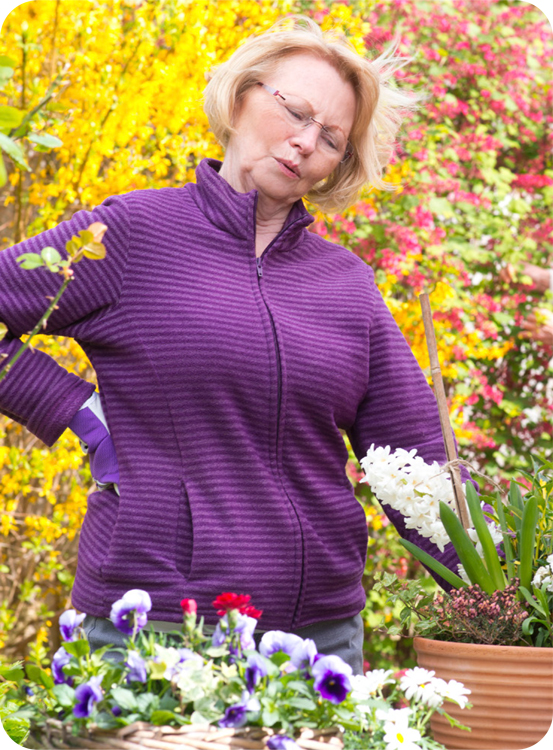
One of the most common questions we hear in clinic is:
“Should I use heat or ice for this?”
In Western medicine, ice is usually the go-to for injuries. It reduces inflammation, numbs pain, and feels good on a swollen ankle or freshly pulled muscle. But from a Traditional Chinese Medicine (TCM) perspective, we tend to lean the other way.
Let’s break it down.
Ice Might Calm It… But It Can Also Slow Healing
Yes, ice works as a short-term fix—it constricts blood vessels, reduces swelling, and dulls discomfort. But in Chinese medicine, that constriction can actually interfere with the body’s natural healing response.
When you get injured, your body sends blood, fluids, and white blood cells to the area. That inflammation you’re feeling? It’s your system doing its job. Ice may relieve some of the discomfort, but it also slows circulation and can prevent those helpful immune and repair cells from doing their work.
Heat Moves Qi. And Healing Needs Movement
In TCM, pain is often caused by stagnation—where energy (Qi) or blood gets stuck. Heat helps relax, dilate, and move, which supports circulation and allows healing to happen more efficiently. Whether you’re dealing with muscle tension, chronic joint pain, or stress-related tightness, heat helps open things up and get things flowing again.
That’s why we recommend heat over ice in most cases, especially for:
- Chronic pain (neck, back, joints, etc.)
- Muscle tightness or knots
- Acute flares of old injuries
- Pinched nerves
- Cold, stiff conditions that worsen in damp or cold weather
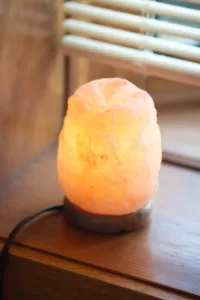
When Is Ice Appropriate?
We’re not totally anti-ice. There are just a few situations where it makes sense:
- Within the first 24–48 hours of a new, acute injury (think: a fall, sprain, or trauma with visible swelling).
- When you absolutely have to keep going (like finishing a game, performance, or long hike with an injury—use it for comfort, then switch to heat after).
- Insect bites or stings where numbing the spot can help reduce irritation.
Even in those cases, we recommend using ice briefly and only if needed—not as a long-term solution.
Bottom Line? Warm It Up.
In Chinese medicine, healing happens through warmth, movement, and circulation—not freezing things into stillness.
So if you’re dealing with pain, tension, or an old injury that just won’t budge, try ditching the ice pack and reaching for the heating pad instead.Your body—and your Qi—will thank you.
Need help figuring out what your body actually needs to heal? Call us at (218) 724-3400 — Heidi is happy to guide you!
Traditional Chinese Medicine and Breast Cancer
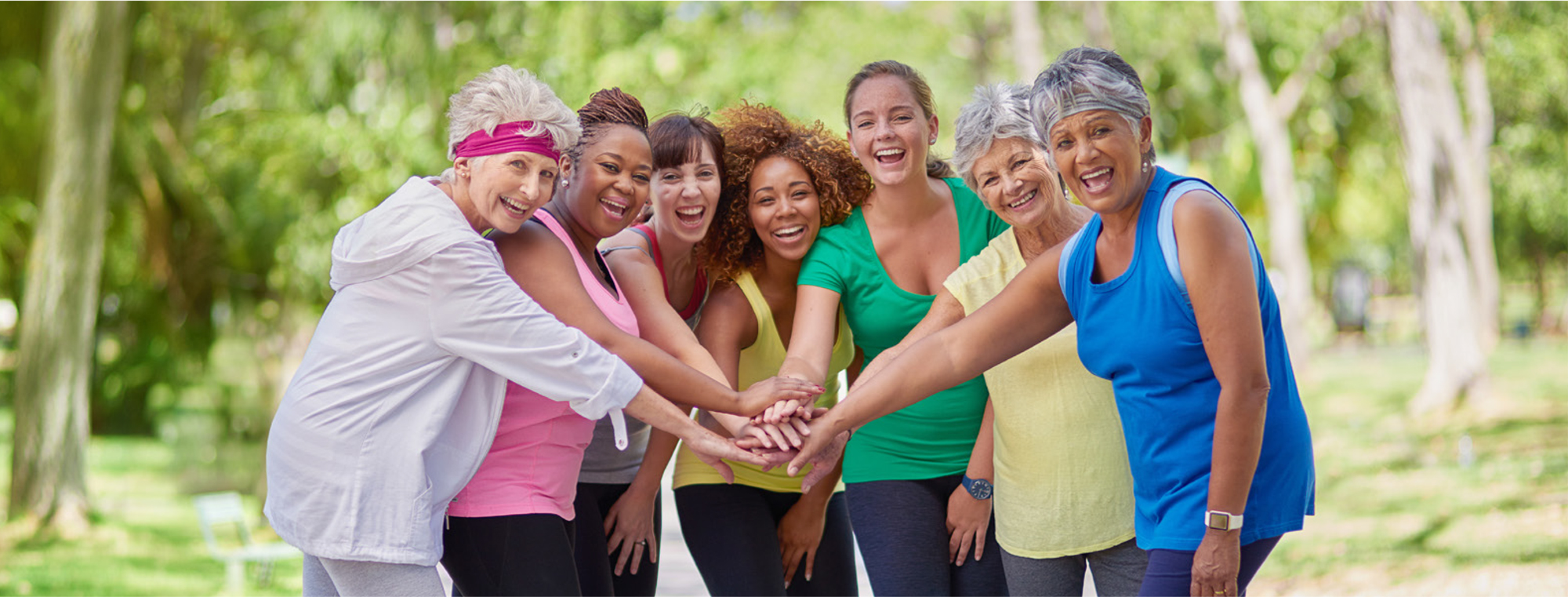
According to the Worldwide Breast Cancer Association, breast cancer affected nearly 1.5 million women and men in 2010. And unfortunately, that number hasn’t decreased by much since then. Breast cancer is the most common cancer in women, worldwide. The United States and the United Kingdom have the highest incidence rates globally, primarily due to excessive exposure to toxic chemicals and improper health habits. Because of this, regular screening is highly recommended. But what should you do if you already have or have had breast cancer? Consider incorporating Traditional Chinese Medicine and acupuncture into your healthcare routine.
Using sterile, hair-thin needles and placing them into specific pressure points on the skin, a licensed acupuncturist can tremendously affect the way a person’s body deals with cancer cells or the sometimes harsh medical treatments you may be undergoing to fight the disease. Acupuncture stimulates the nervous and immune systems to release natural painkillers and infection fighters. Studies have shown acupuncture can help relieve fatigue, control hot flashes, decrease nausea and vomiting and decrease pain levels.
Acupuncture is just one facet of TCM.
There are other practices, such as tai chi or qi gong that can help keep you healthy or increase your immunity while fighting a disease. Research confirms that being too sedate and inactive can actually contribute to the body becoming diseased. Everybody has cancer cells in their bodies. But these cells only proliferate when given the right set of conditions. By incorporating things like qi gong or tai chi, you can still get the exercise your body needs, which helps increase long-term immunity, thus warding off disease.
For those who are already suffering from breast cancer, Traditional Chinese Medicine can indeed help. If surgery has been performed to remove the tumor(s), acupuncture along the scar lines can stimulate blood flow, relieve pain and increase mobility that may have otherwise been impeded due to skin tightness. Acupuncture treatments can increase collagen in the skin and this helps relieve added tension along the scar lines. This can also allow for cancer patients to undergo more aggressive physical therapy that will help them heal faster and return to a normal life.
 Most cancer patients who opt for chemotherapy and radiation also become severely immunocompromised, making it harder for them to recover and more susceptible to other infections. Utilizing acupuncture during and after cancer treatments can be very beneficial and stimulate the body’s immune system. However, receiving acupuncture treatments as preventive care, just like eating healthy foods, can help keep the body free from disease to begin with. And once the cancer is in remission, continuing with regular acupuncture treatments will increase the immune system’s ability to remain strong.
Most cancer patients who opt for chemotherapy and radiation also become severely immunocompromised, making it harder for them to recover and more susceptible to other infections. Utilizing acupuncture during and after cancer treatments can be very beneficial and stimulate the body’s immune system. However, receiving acupuncture treatments as preventive care, just like eating healthy foods, can help keep the body free from disease to begin with. And once the cancer is in remission, continuing with regular acupuncture treatments will increase the immune system’s ability to remain strong.
Breast cancer is no laughing matter and it can be a death sentence. But it doesn’t have to be. While mammography is the standard form of early detection, thermography is a much safer option and it is gaining ground. Thermography is a tool that monitors breast health, assesses breast cancer risk and does not expose the patient to radiation. These are all things that mammography cannot do. Along with the use of early detection, regular acupuncture treatments can greatly increase the chances of never hearing those words from your doctor, “You have breast cancer.” So what are you waiting for?
Give us a call today at (218) 724-3400 to start your preventive care!

